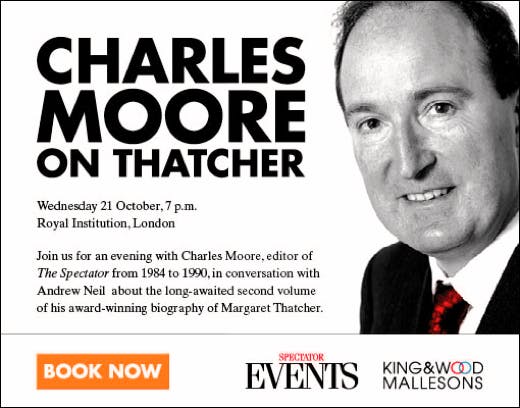Even if everything goes wronger still, the Greek No vote is a great victory for the left. Until now, the left has not mounted a serious challenge to the claims of the EU. It is extraordinary how it has been cowed. The single currency, especially a single currency without a ‘social dimension’ and political union, is the classic ‘bankers’ ramp’ against which the left always used to inveigh. It is a huge collective device to put banks before workers, if necessary reducing the latter to poverty. Greece is an almost perfect example of this, with the rescue designed to save European banks, not Greek people. More than a quarter of a century ago, however — influenced, perhaps, because Jacques Delors was on one side of the argument and Margaret Thatcher on the other — the mainstream left decided that Europeanism was an essential badge of respectability, and gave up thinking about the matter from that day to this. Its unquestioned assumption is that the EU is the only modern engine which can guarantee the combination of prosperity and expensive social programmes. In the case of Greece — and, less dramatically, Portugal, Spain and Italy — this is now blatantly untrue. Anti-‘austerity’ candidates like François Hollande in France have won from time to time, but they have never dared point out the EU authorship of the austerity, and so they have quickly buckled. Yet the eurozone has become a scene of class war, and only Syriza has been bold enough to fight it almost full on. Even if Mr Tsipras and his comrades are thrown out this week, 5 July will be one of those great moments in socialist history, celebrated in song and story, and used to inspire future generations. It might give birth to some latterday Keynes — Yanis Varoufakis, perhaps, now that he has no job — composing ‘The Economic Consequences of the Euro’. Most Euroscepticism in recent years has been dominated by the right. Rather galling that a government of the left has been the first to throw down the gauntlet.
The excellently named Euclid Tsakalotas has become the Greek finance minister after the sacking (tsaking?) of Varoufakis. He was educated at St Paul’s in the 1970s, and went on to Oxford. This atrocious suffering made him, even at the time, a supporter of Irish republicanism. In March this year, he popped up at a Sinn Fein conference and began his speech by apologising for his English accent, adding that ‘in mitigating circumstances, I am married to a Celt’. Euclid’s theorem is that the Irish are ‘honorary southerners’, now forming an arc of leftist insurrection which runs from Dublin, through Podemos in Spain, to Athens. Given the horrors inflicted on these countries by the eurozone, one almost wishes it well.
One of the best arguments for the EU is the way that it can help countries with a dark past emerge into the light of democracy — look at Spain, Poland, Greece itself. It has done this partly by offering skills in ‘capacity-building’. But if, as happened from the first with Greece, the weaknesses of the member state’s economy, debt/GDP ratio, tax system and so on have simply been concealed rather than remedied, then the Union institutionalises lies and becomes a machine for incapacity-building.
Why is the Murdoch organisation so down on the Greek No? The Times and the Wall Street Journal have got really angry on the subject. In my hotel room in Palo Alto, from where I am writing, Fox News is caustic about Greece’s shortcomings and expresses no sympathy for its people. Is this just a bone-headed, Pavlovian response to any government known to be of the left, or has Mr Murdoch got some big EU fish to fry?
Virginia Utley, my secretary when I edited this paper, has written to Prime Minister and Chancellor, jointly. She asks, ‘Please could you tell me what a family is?’ Nowadays, she goes on, you teach us that a family can be made up of men who love men or women who love women, who must therefore be equally entitled to marry one another. ‘Now,’ she continues, her sister and she ‘both think boys are very nice but neither of us met one we quite liked enough to marry… So my sister and I have bought a house together and have lived happily there for years and years and years.’ So, ‘Please can my sister and I get married?’ If not, the sisters themselves, and Virginia’s sister’s daughter, will not get the benefits which accrue to married people. ‘I am sure,’ she entreats Mr Cameron and Mr Osborne, that ‘you will not say “No” to us when you said “Yes” to all the others… Because that wouldn’t be fair, would it?’
On Sunday night, which was beautiful after rain, we went to Garsington Opera. It is a miraculous place because the estate starts only a few yards from the M40, and is about half an hour from London, and yet bears no trace of either. The opera was Intermezzo by Richard Strauss, which I had never seen or heard before. It is a little tease by Strauss of his hyper-critical wife who found being married to a famous composer trying. But it has the ability — beautifully brought out by Mary Dunleavy as Christine the wife — suddenly to move from light comedy to true feeling and great pathos. Opera can do this so much better than plays. It must be because the mixture of music and words creates a blessed lack of realism, which makes anything possible.
The other day, I asked four thoughtful, indeed brilliant people — one a Fellow of All Souls — what mathematics was. I realised I could describe what you might call its symptoms — algebra, geometry, arithmetic — but I could not identify its nature. Nor, really, could my companions. One said it was ‘a sort of logic’, another that it was ‘a form of language’. But both conceded that these were not adequate answers. Since one must presume that mathematics is central to the nature of the universe, I feel ashamed that I consider myself an educated person and yet do not know the answer.
Got something to add? Join the discussion and comment below.
Get 10 issues for just $10
Subscribe to The Spectator Australia today for the next 10 magazine issues, plus full online access, for just $10.
















Comments
Don't miss out
Join the conversation with other Spectator Australia readers. Subscribe to leave a comment.
SUBSCRIBEAlready a subscriber? Log in